Disclaimer: This is based solely on my personal opinion and experiences over the years. Your mileage may vary, but I wrote this with the intention of not being confrontational, but just looking at the history of this big part of pop culture for the past few years and how whatever it is that is released next year is a win for Zack Snyder and a win for WB more than anyone else.
During a watch party of 2013’s “Man of Steel,” director Zack Snyder broke the news a group of film/comic social media has anxiously awaited, the long-rumored, mythical “Snyder Cut” of “Justice League” was going to see the light of day in 2021 on HBO Max. There’s a lot to unpack here, and I’ll tell you right off the bat I’m surprised it’s seeing the light of day, though when reading the whole story it makes sense. I’m not a fan of the Snyder films, and I’ve done my piece arguing the merits, especially the depiction of Superman, on social media and have moved on a long time ago, but I think there are some valid things to discuss with this coming release, which is why we’re here.
A bit of history first. In 2013, “Man of Steel” starring Henry Cavill and directed by Zack Snyder was released as a reboot of the Superman film franchise. Reception to the film was mixed. For me personally, there are some things I really love about it – the cast, the score, the Krypton stuff, Michael Shannon’s Zod, Christopher Meloni – and there’s a lot I absolutely loathe about it – it’s too dark, it’s dour, it’s not hopeful or optimistic, it’s too “Dark Knight,” Pa Kent’s a jerk, the overly gratuitous destruction. This is my opinion on the film. A lot of people, even those who have written and drawn Superman, share my sentiment, others don’t. That’s fine, we’re not here to reignite that debate.
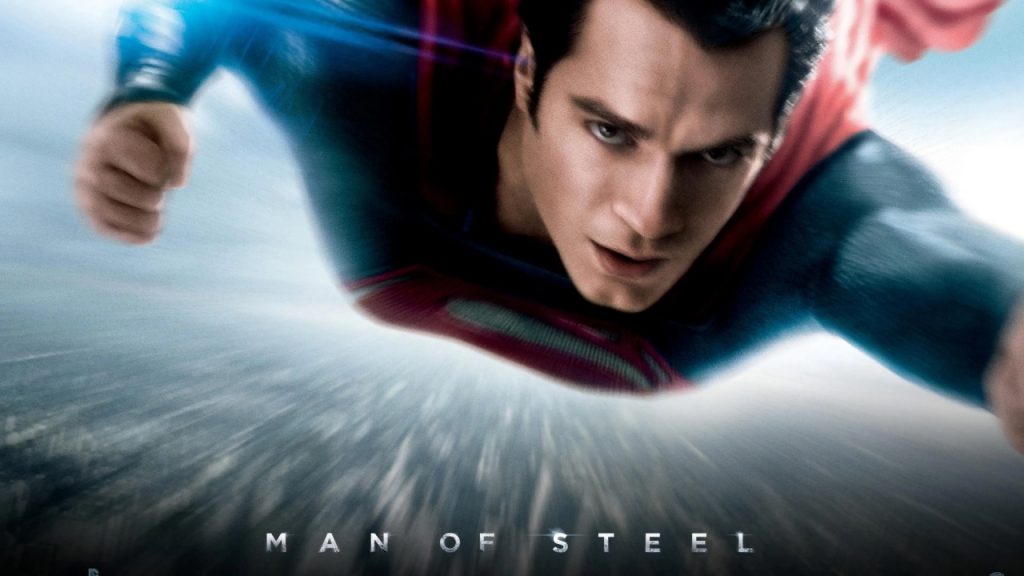
The odd thing about “Man of Steel” is that it in no way sets up or establishes a broader superhero universe. It’s essentially a self-contained, singular-franchise starting alien invasion film. That’s not a negative criticism, that’s just how I saw it and still see it today. That also caused some head-scratching at the announcement of “Batman v. Superman: Dawn of Justice” starring Ben Affleck as an older, weathered Batman.
Fast forward to “Batman v. Superman: Dawn of Justice.” I’ll tell you right off that bat. I do not like this movie. I didn’t when I saw it and I still don’t. Sure, there are some things redeeming about it, namely it gave us Gal Gadot’s Wonder Woman, but I think it’s one of the worst comic book movies ever made. I wrote a review of it in 2016 which you can read here: http://comicodyssey.blogspot.com/2016/03/what-knightmare-my-review-of-batman-v.html. I’m honestly not sure I’d take as an aggressive tone these days, but my overall opinion of the film hasn’t changed. Again, I am not here to re-litigate “Batman v. Superman.”
However “Batman v. Superman” is an important piece to this puzzle because that’s where things started to unravel. Credit where it’s due, Snyder knows how to cast a movie. Just about every casting choice in these films was superb. I also liked the idea, which WB/DC still does now, that this world and these heroes just exist (once again more evidence “Man of Steel” was never meant to start a Marvel-style universe). But that idea benefitted “Suicide Squad” and has even benefited the post-DCEU films like “Aquaman,” “Shazam!” and “Birds of Prey.” (I am saying post-DCEU for the sake of simplicity and to differentiate from pre-BvS and post-BvS). Despite some overall positives, “Batman v. Superman” launched a million raging debates, a number of heated social media exchanges and essentially gave birth to die-hard Zack Snyder fans who would eventually morph into a passionate and often times, toxic, social media army. Now don’t take that as if I’m saying all “Snyder fans” are toxic, but this particular contingent of fans didn’t earn a reputation for being respectful all the time.
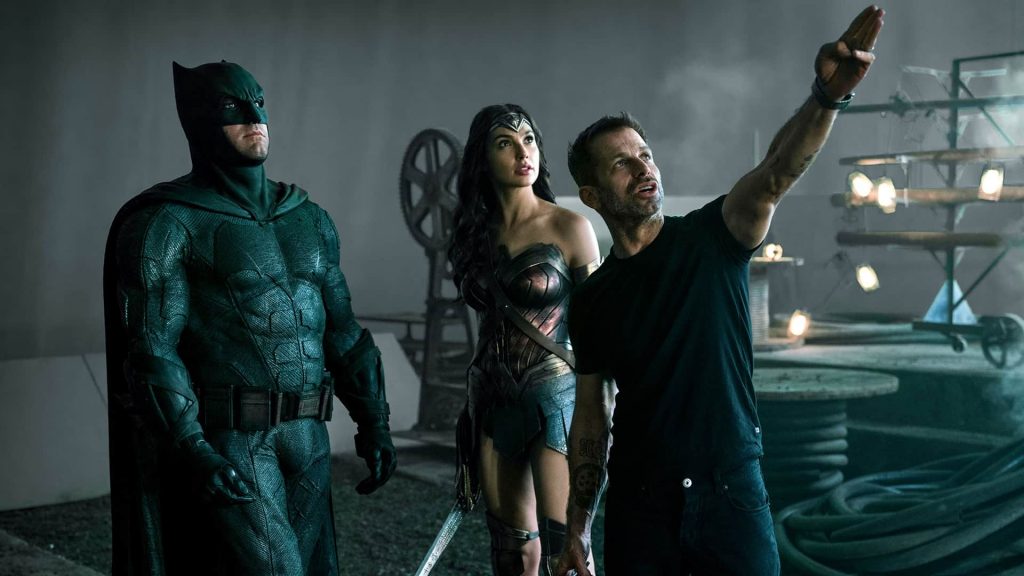
In addition to dividing fans, which is not what corporate entities want for major tentpole release of huge IPs, “Batman v. Superman” was critically-panned. This also helped give birth to the idea that “Disney pays Rotten Tomatoes” or whatever other weird conspiracy theory about a review aggregator that has popped up in the years since. The film pulled in a hefty $872 million worldwide; short of the $1 billion that was hoped for, but calling it a total box office failure would be entirely inaccurate.
Nevertheless, debate over this film has raged, now five years after it was filmed and four years since its release. Following the less-than-stellar critical reception of “Batman vs. Superman” and the undeniable schism caused among fans of the characters, there was actually an open question and speculation as to whether or not “Justice League” would actually happen. The poor critical reception to “Batman v. Superman” follow-up “Suicide Squad” only deepened this speculation.
Briefly, “Suicide Squad” for me is a bit of a mixed bag. Will Smith is great, Margot Robbie is phenomenal, Jai Courtney’s Captain Boomerang is a lot of fun and I mean, Viola Davis as Amanda Waller is **chef’s kiss.** But the plot is all over the place, it doesn’t hit every beat and you can count me as not a fan of Jared Leto’s Joker.
There was a general rejection of the darker take on the DC Universe and whatever Snyder’s vision was meant to be, especially when contrasted to the Marvel films. I’m not going to go deep into the DC movies vs. Marvel movies nonsense, please understand I want to like ALL of these movies, no matter which company makes them. This shift away from the darker tone went deeper than just the movies. In comics, The New 52 was mostly abandoned for “Rebirth” which captured more the classic spirit of DC Comics and the TV shows embraced more and more of the DC mythos.
A stark contrast between the movies and TV was evident. The main TV universe, the CW’s Arrow-verse, which included “Arrow,” “Flash,” “Supergirl” and “Legends of Tomorrow” was beloved by fans and did not cause as much of a divide as the movies. And then “Supergirl” season two did something no one thought would happen – Superman returned to the small screen.
Tyler Hoechlin’s Superman is much different than Cavill’s. He was more of an amalgamation of 80 years of the character rolled into one package. There’s a lot of Richard Donner, John Byrne and Dan Jurgens in the CW’s Superman, and he’s been so beloved by fans that the CW is premiering “Superman & Lois” in 2021.
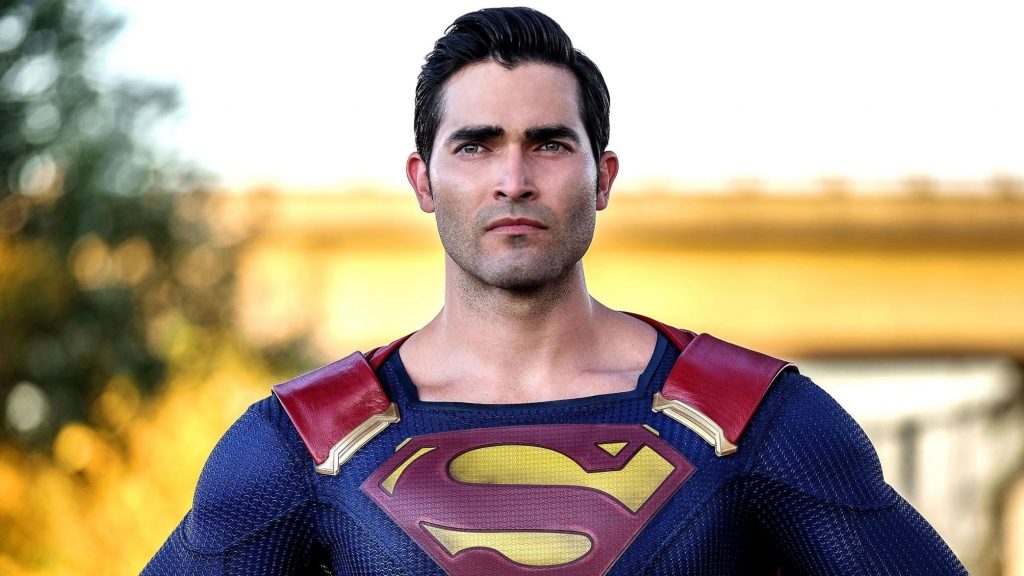
This shift continued with “Wonder Woman” in 2017. DC and WB finally had their critically-acclaimed smash-hit. The Patty Jenkins-helmed movie used some the character’s introduction in “Batman v. Superman” as a framing device, but it stands on its own and was noticeably different in tone than the Snyder films.
However, during this shift in tone, “Justice League” was already in production. Following the less-than-stellar reception of “Batman v. Superman,” WB/DC wanted to shift course with “Justice League” during production. They wanted something more streamlined, brighter and more optimistic – something that captured the classic DC vibe. This ran counter to where Snyder’s vision was supposedly going. By all accounts, Snyder’s planned saga was set to explore some really dark and dystopian ideas, certainly not my cup of tea when it comes to DC Comics, but I lost interest in where the film series was going after “BvS.” Reports indicated writer Chris Terrio and executive producer Geoff Johns were at odds about the story and the constant rewrites to match the desired tone. Mind you, this is all while production was ongoing which can be absolutely devastating for a film.
Further reports indicated that WB had summits with filmmakers like Joss Whedon and Patty Jenkins which led to more rewrites, all indicating that the studio wasn’t happy at all about the direction of Snyder’s vision.
During post-production, tragedy struck Snyder and he stepped away from finishing the film. This led WB to hire Joss Whedon to reconfigure the script, reshoot a good portion of the movie, essentially redo Superman’s scenes – giving us some really great Superman moments marred by the infamous CGI-ed out mustache, saturated the color in the film to make it brighter and put together a Frankensteined film that was acceptable to some fans, but still failed to impress critics or draw a big box office.
This history is important to understanding what’s going on today. After Snyder’s departure and the release of “Justice League,” something started to take shape on social media. It was bolstered by the biggest fans of Snyder’s previous DC films and they did not take a liking to the theatrical version of “Justice League,” calling it “Joss-tice League” and soon giving birth to the movement known as #ReleaseTheSnyderCut.
Sure, there is merit to saying “Snyder should at least let his vision see the light of day,” especially considering the film was already in post-production. There are people who genuinely want to see it, and that’s totally fine. Whatever professional reasons built up to him leaving the film is not for me to speculate, but the personal tragedy is enough for anyone to step away from whatever it is they are working on. On that note, it’s actually nice that Snyder will have the chance at some closure to that period in his life.
However, what happened over the course of three years first with “Batman v. Superman” and then with “Justice League” and the entire #ReleaseTheSnyderCut movement is a textbook study in pop culture divides in the time of social media.
I’m not going to “both sides” this. From my direct experience dealing with it, seeing comic book creators, film critics, directors, actors and brand social media accounts deal with the movement, it’s often not in good faith and the constant trolling borders on obsessive. Of course, if you point this out to anyone who militantly supports the hashtag, you will be immediately subject to the “both sides” and how Zack Snyder has suffered abuse from critics and the studio and how he, as an artist, should be allowed to see his vision through and how anyone who doesn’t see the “beauty” in his interpretation of DC superheroes is “wrong,” a “cuck,” a “Marvel fanboy” or some other oft-used internet euphemism meant to be derogatory. As a huge fan of Superman and someone who doesn’t like Snyder’s films but didn’t mind “Justice League” for what it was, I’ve been subject to it and it’s frankly, insane.
PLEASE bear in mind that this does not apply to everyone. I am NOT saying that anyone who wants to see this or has supported it’s release falls into this category at all, so please understand I’m not generalizing, it’s undeniable there is a subset of fans that have given this movement a less than favorable reputation in some circles.
Okay, what would the Internet be without raging debates over fictional characters and movies? Sure. But the #ReleaseTheSnyderCut movement took things to a completely different level. Warner Bros., Geoff Johns, DC Comics, the stars of the film series, directors of later DC films and more often couldn’t send a tweet without a barrage of #ReleaseTheSnyderCut hashtags and they weren’t always nice.
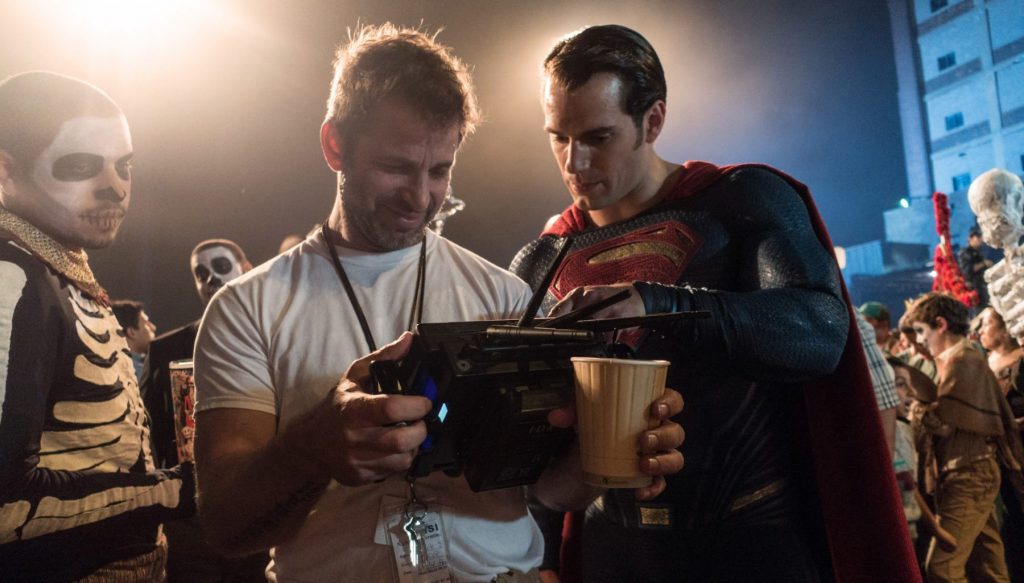
If you’re just a regular person tweeting or making a joke about “MARTHA!” or anything else from Snyder’s movies, you’d often be bombarded by one of the devoted that would point out how wrong you are or worse. There was one time I made a “Martha” reply in a lighthearted tweet-thread with two friends – one a prominent digital producer and the other a prominent comic book creator – and suddenly I was hit with a day’s worth of tweets about how I’m making fun of PTSD and how I’m a bad person because of it. Every single person who tweeted at me had some variation of “Snyder Cut” in their profiles. That’s small potatoes to some of the other barrages of tweets that people have gotten for merely voicing an opinion on any of the Snyder-related films. A comic creator like Dan Slott or Mark Waid, who you know, have both written Superman? They’d get hammered regularly and still do. Geoff Johns is a constant target of this kind of harassment. And of course, Joss Whedon.
Following the announcement of “Zack Snyder’s Justice League,” there was a tweet from Joss Whedon, completely unrelated that was bombarded with replies about how he was “crying” or he was “cucked” or whatever else. I guarantee you if you ask Whedon, he doesn’t think about “Justice League” very often, he got paid by a major studio to do a job and meet their mandate. The tweeting about and at Whedon became so intense that he was trending.
With the announcement came the report that WB was going to spend $20-30 million on this project – more on that in a minute – but already there were the die-hards calling for “release it as is” or “anything additionally added is unacceptable.” There’s no pleasing this group, and there won’t be any pleasing this group even with whatever is released on HBOMax. Again, more on that in a moment.
The reason I’m not going to “both sides” this entire thing is because there isn’t a both sides. I have written and tweeted that I didn’t like “Man of Steel” and really didn’t like “BvS,” and that I’m not a fan of Zack Snyder’s work. There is nothing wrong with that, to each their own, but I’ve seen that very opinion bring about social media abuse not only to myself but a lot of others… even some people who liked the films but don’t agree with the methods of the movement. Not liking a filmmaker’s work is valid criticism, it’s not “abuse” directed at a filmmaker. Not believing in the existence of a “Snyder Cut” – which, as the Hollywood Reporter reported, it actually doesn’t exist yet – is not mocking or looking down upon a fan base.
These are typically the most used “both sides” arguments used by the true Snyder-devotees. And I’m sorry, that’s just not the same as wishing death upon someone or slinging verbal abuse at someone for not agreeing with your take on something. It’s totally fine to have healthy debate, but this topic frequently doesn’t go there because “Batman v. Superman” is a masterpiece to so many of the #ReleaseTheSnyderCut faithful. On some level that’s okay because film criticism is subjective, but there are large swaths of that movement who will not accept any opinion other than the one they share.
Some examples include Henry Cavill’s Superman being the perfect Superman, or his suit being the perfect suit. Ben Affleck being the one true Batman and now having been “robbed” of making his own Batman film despite a recent profile where he explained how the role and the stress around it was completely unhealthy for him. Those who want more “Batfleck” have often targeted “The Batman” director Matt Reeves for “stealing” the film from Affleck. And of course, the violence… one of the hallmarks of the Snyder films. Look, Superman doesn’t kill and neither does Batman, and this debate always rages. However, Superman snapping Zod’s neck in “Man of Steel” is where the division truly started and while Affleck’s Batman did earn a lot of praise (hell, I liked him in the role), he was extremely violent and had no problem killing people. That is just the antithesis of Batman. Many supporters of the film would point to Frank Miller’s “Dark Knight Returns” as evidence Batman kills, but they must not have read the book because yes, he’s bigger, older and a little more brutal, but he absolutely doesn’t kill… he even makes a whole point of it.
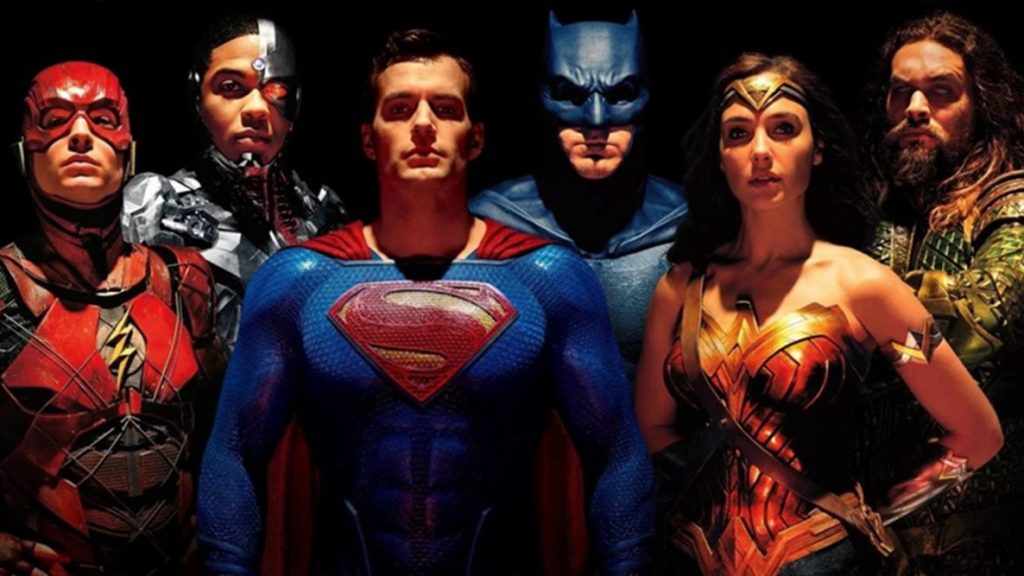
Over the course of the last few years, the movement grew in intensity. It had gotten so bad that many people wouldn’t even tweet “Snyder Cut” with or without a hashtag so they wouldn’t be subject to what was coming. There were entire billboards bought in Times Square, at San Diego Comic Con, someone even flew a banner with “#ReleaseTheSnyderCut.” A passionate fan base sure, and you know on some levels that’s neat to see, but when the reputation that surrounds that grows to be considered toxic and only intensifies, then we’ve got a problem. Star Wars has this problem. Marvel’s is growing but it’s not nearly as pronounced, in fact, most of the Marvel detractors are Snyder Cut faithful, when success of comic book movies really shouldn’t be a competition if you truly love these characters and that medium.
What of Zack Snyder’s role in all of this? If anyone truly has something invested in this saga, it’s him. What filmmaker would want something they devoted years of their life to be abandoned forever by no choice of their own? He pushed the movement along, he fanned some of the flames and honestly, hard to blame him. However, from the outside looking in, there was also what I call the “extremist problem.”
The “extremist problem” is most prominent in politics, particularly on the far-right and far-left. On the far-right you have MAGA-Twitter, the die-hard Trump supporters, on the left there’s “Rose Twitter” which has become associated with the most devoted followers of Bernie Sanders. I’m just going to ignore Trump because he’s an active participant in the MAGA-Twitter problem, but Sanders is often criticized for not “controlling” his social media supporters. Of course, no one can truly control people tweeting or bots botting, but the most common call for Sanders would be for him to address said supporters and tell them to stop online harassment. He would often do it during televised debates or interviews but some would question how genuine those calls were. After all, there is certainly something advantageous to having an army of people who share a particular set of beliefs ready to defend those ideas at a moment’s notice.
Rather than tell his most devoted followers to stop attacking or harassing people online, Snyder would instead send out periodic teasers that would only further intensify the cause. Is he at fault? Should he be expected to regulate something done in his name? That’s an open question for some, especially when something reaches the level of having a toxic reputation. I don’t have the answers.
Now that WB has announced that “Zack Snyder’s Justice League” will come to HBOMax in 2021 in some form, it does beg the question of whether or not the sort of toxic behavior that has been prominent in the #ReleaseTheSnyderCut movement is being rewarded. Does it now set a precedent? These are valid questions to ask given the fairly controversial history surrounding the Snyder DC films. This entire affair is certainly a case study, but it does give the vibe that bad behavior is being rewarded. It’s not the first time that kind of kowtowing to online pressure has altered the course of a film or franchise. Look no further than the Star Wars sequel trilogy, especially after reaction to “The Last Jedi” for that.
I do think “Thor” screenwriter Zack Stentz made a really good point that this was more a matter of a once-in-a-lifetime alignment of the stars rather than the results of any particular movement. Stentz made the point that this was a unique situation of a cast and crew willing to revisit past work and a company looking for something you can only get on its upcoming streaming service (more on that in a moment), and he’s right.
However, there’s a little more to it. I mentioned the Hollywood Reporter piece earlier. It states that Warner Brothers is going to spend $20-30 million to finish the film, and that in Snyder’s words “it will be an entirely new thing.” The piece also notes that what exists is a rough cut shown to studio executives, the long fabled “Snyder Cut” never really existed to begin with, that’s what they’re going to make now. Of course scenes were shot, if you know anything about film production you know what dailies are, but there wasn’t some finished work that WB was suppressing from the world. Frankly, I’m surprised WB is willing to put such a huge investment into this to finish post-production, but I’m also glad that whatever they release won’t be half-assed with unfinished effects or storyboards.
And though I may not like his films and I’ve been highly critical of his depiction of Superman, I am genuinely very happy for Snyder that he can complete this project that was marred by such a dark time in his life. Ultimately, I think that’s a pretty big win for him. I may not care for his vision, but as a creator, I’m happy he has the chance to see this through. Not a lot of creative types get that chance.
What remains to be seen is whether this will be enough to satisfy the Snyder Cut faithful that have devoted so much energy to disparaging and harassing anyone who dare disagree with their view of what they “deserve” when it comes to a corporately-owned IP that cares more about shareholders than what a subset of fans want. Again, I am NOT saying that anyone who wants to see this or has supported it’s release falls into the category. Reports indicate that it could be a four-hour director’s cut or a multi-part series on HBOMax. Will that be good enough? What if, after all of this, they don’t like it? Will it then be WB’s fault for “allowing Snyder to finish it under their supervision?” What comes to pass remains to be seen.
Further reporting by The Wrap on May 22 has indicated that there won’t be any reshoots and this will wrap up Zack Snyder’s story with the Justice League. That does make one wonder if that will satisfy the #ReleaseTheSnyderCut faithful. It’s long been said that Snyder planned for a multi-film story, but we’re not going to see that. It’s clear that whatever is released in 2021 is NOT what was intended to be released in 2017.
Does it mean that WB will abandon Matt Reeves’s “The Batman?” Absolutely not. Does it mean that if Cavill does return to playing Superman that it will be a continuation of this series? At this point, probably not. Will it suddenly mean that Snyder will be given the reigns of DC once more? Doubtful.
The reason – the real reason – this is coming to fruition now is HBOMax. Deborah Snyder acknowledged that the streaming service really opened the door for this to happen. Everything is a content game now and the field is plentiful. With the uncertainty surrounding the pandemic, streaming services have to up their game. Netflix, Amazon Prime, Hulu, Disney+, CBS All Access, Peacock, WWE Network, ESPN+ and more are all fighting for your dollars. HBOMax is launching at $14.99. When compared to other services and bundles, that’s honestly pretty steep. The most important thing to these services is subscribers, and ultimately retaining those subscribers. That’s why you see CBS All Access essentially become the home for Star Trek, a “Saved By The Bell” revival on NBC’s Peacock or all the movie-level Marvel shows coming from Disney+. These services have to offer something unique to get and retain subscribers and “Zack Snyder’s Justice League” fits the bill. That makes this release the perfect opportunity to nab extra subscribers.
While I really have no interest in seeing it, I’m sure I’ll get around it at some point so I can form my own, supported opinion on it. I’m kind of indifferently intrigued. The real question is whether it will be enough to satisfy the fans who have clamored for it or if it will create more division and continue to foster an online environment that doesn’t have the best reputation. I’d hope I’m wrong, but the answer I think is “no, it won’t.”
In closing, I think it’s best left to Henry Cavill’s post yesterday:
